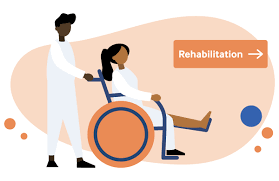A groundbreaking trial published today by The BMJ reveals promising results for adults grappling with long covid. The trial, known as REGAIN, demonstrates that an eight-week online programme of physical and mental health rehabilitation can significantly enhance quality of life for individuals with lingering symptoms post-covid-19 infection.
Long covid, characterized by persistent symptoms lasting beyond four weeks after initial infection, has affected millions worldwide. As of March 2023, over 1.9 million individuals in the UK reported enduring symptoms beyond 12 weeks, with symptoms ranging from fatigue and shortness of breath to memory loss and muscle aches.
Led by a team of researchers, the REGAIN trial enrolled 585 adults who had been discharged from the hospital at least three months after a covid-19 infection. Participants were randomized into two groups: usual care or the REGAIN intervention. The REGAIN intervention consisted of weekly supervised group exercise and psychological support sessions delivered online over eight weeks.
The results of the trial were striking. Participants in the REGAIN group experienced sustained improvements in health-related quality of life at three and 12 months compared to those receiving usual care. Notably, improvements were driven by enhanced fatigue, pain, and depression management.
At the three-month mark, 17% of participants in the REGAIN group reported significantly better overall health, compared to only 8% in the usual care group. Importantly, the intervention was deemed safe and well-tolerated, with minimal adverse events reported.
Despite some limitations, including the lack of participant masking and representation of non-White individuals, the REGAIN trial marks a significant milestone in long covid research. It provides compelling evidence for the clinical benefits of online rehabilitation programmes, offering hope for individuals struggling with persistent symptoms post-covid-19 infection.
The findings have profound clinical implications, suggesting that rehabilitation programmes should prioritize addressing fatigue, pain, and depression in long covid patients. However, challenges remain in scaling up such programmes and ensuring accessibility for all affected individuals.
Researchers emphasize the need for scalable methods to train clinicians in delivering effective rehabilitation therapies for long covid patients. Health service providers must also consider supporting the delivery of new treatments to meet the growing demand for post-covid-19 care.
The planned REGAIN economic evaluation will offer further insights into the feasibility and cost-effectiveness of implementing online rehabilitation programmes for long covid patients, paving the way for improved management and support for this complex condition.












